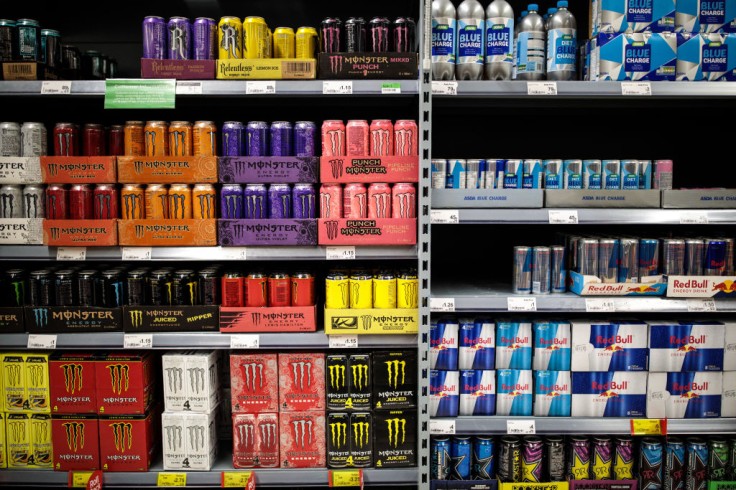
The Labour Party of the United Kingdom has revealed a plan aimed at establishing the healthiest generation of kids ever.
UK Proposes Banning Highly Caffeinated Energy Drinks Under 16
One of its key recommendations is to ban the sale of highly caffeinated energy drinks to kids under 16, a measure long endorsed by public health experts in the United States.
If implemented following the forthcoming general election, the plan would ban the sale of energy drinks with more than 150 milligrams of caffeine per liter to minors.
This means beverages like Coca-Cola, which commonly contain around 34 milligrams of caffeine per can, would still be available to those under 16, whereas higher-caffeine drinks like Monster, with 160 milligrams per 16-fluid-ounce can, would not.
Recently, many UK supermarkets willingly administered a mandatory ban, it would join several other countries such as Poland and Latvia in regulating energy drink sales.
If the UK enacts a mandatory ban, it would join several other countries such as Poland and Latvia in regulating energy drink sales.
In contrast, the United States lacks federal regulations on this issue, and state-level efforts have faced significant challenges despite concerns over the safety of these beverages.
The argument surrounding energy drinks has expanded with their raised popularity and potency. Research has linked them to several health risks, including mental health issues and disrupted sleep patterns.
While the FDA sets guidelines for caffeine intake in adults (up to 400 milligrams per day), the American Academy of Pediatrics suggests against caffeine consumption among children and adolescents, specifically through energy drinks.
Critics debate that these beverages often contain additional stimulants and supplements whose effects on kids remain poorly understood. They point out that the high caffeine content in these drinks can overmuch influence kids due to their lower body weight compared to adults.
Despite calls for stricter regulation, major energy drink manufacturers debate that their products are safe when consumed responsibly and note willing measures to prevent marketing to young kids.
The debate emphasizes continuous issues over the health risks posed by energy drinks, specifically to young buyers, amid a booming market and evolving beverage offerings from major chains like Dunkin' and Starbucks.
Read Also : Caffeine Overload: FDA Urged to Investigate Logan Paul, KSI's PRIME Energy Drink for Kids
Buying High-Caffeine Energy Drinks Considered Risky Under Aged 16
Under Labour's potential election win in July, children under 16 might be prohibited from purchasing high-caffeine energy drinks deemed hazardous.
While some supermarkets have voluntarily stopped selling these products to minors, Sir Keir Starmer aims to mandate this ban if his party succeeds in the General Election.
Labour debates that careless sales and marketing of these drinks are adding to a crisis in children's health, influencing concentration, sleep, and mental well-being.
Drinks like Red Bull, Prime, and Monster can contain up to 150mg of caffeine, nearly twice the amount in a common black coffee. Despite their affordability and fame among young people, consuming these beverages enormously and frequently could lead to severe health concerns, including raised risk of heart problems and cancer, according to studies.
Labour's plan would enforce bans on energy drinks exceeding this caffeine limit, with trading standards overseeing compliance.
Retailers would need to verify customers' ages, similar to alcohol and tobacco sales, with penalties of up to £2,500 for non-compliance.
Sir Keir Starmer highlighted the essentiality of protecting children's health, contrasting with what he described as Tory inaction on the matter.
While energy drinks' caffeine content poses health dangers such as disrupting heart rhythms, the inclusion of up to 21 teaspoons of sugar per serving is another issue among experts. This enormous sugar consumption can add to obesity and related health concerns, reflecting broader difficulties in public health policy and children's dietary habits.
Celebrity chefs and health advocates have praised Labour's initiative, emphasizing the need for comprehensive measures to tackle childhood obesity and promote healthier lifestyles.
Related Article: Energy Drinks Ban for Under 16 To Push Through Amid Health Risks